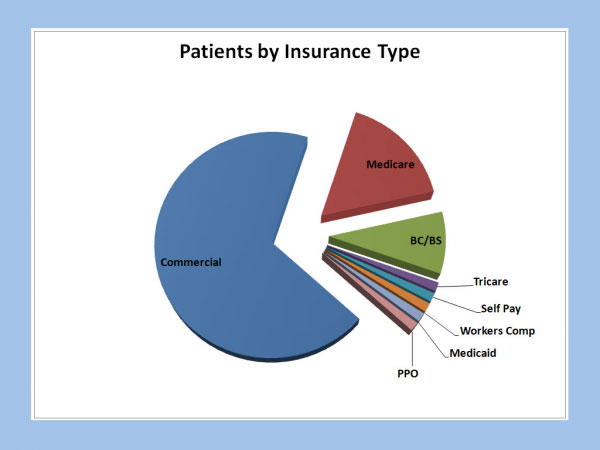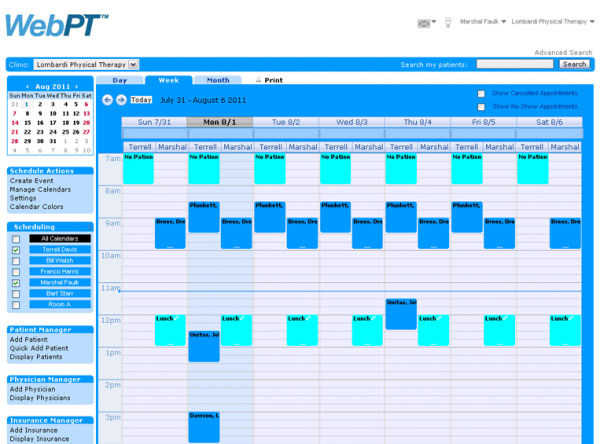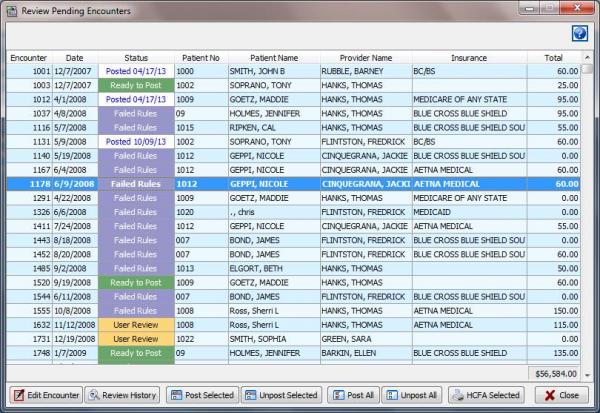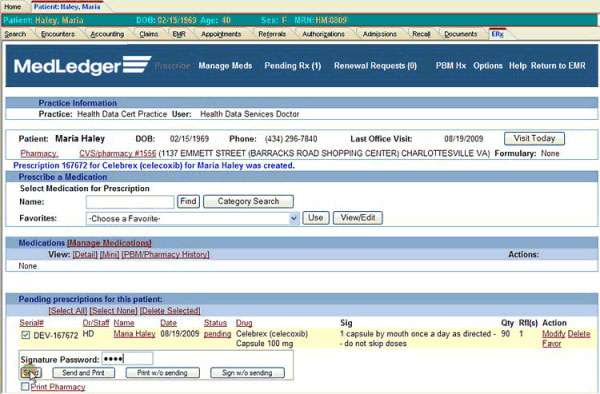Find the best Speech Therapy Software
Compare Products
Showing 1 - 20 of 58 products
Sort by
Reviews: Sorts listings by the number of user reviews we have published, greatest to least.
Sponsored: Sorts listings by software vendors running active bidding campaigns, from the highest to lowest bid. Vendors who have paid for placement have a ‘Visit Website’ button, whereas unpaid vendors have a ‘Learn More’ button.
Avg Rating: Sorts listings by overall star rating based on user reviews, highest to lowest.
A to Z: Sorts listings by product name from A to Z.
WebPT
WebPT
Established in 2008, WebPT is the nation’s most trusted outpatient rehab therapy software platform in the country, helping more than 150,000 rehab therapy professionals from all practice sizes and specialties run successful and ef...Read more about WebPT
TheraOffice
TheraOffice
TheraOffice is an electronic medical records (EMR) and practice management solution specifically designed for physical therapy and rehabilitation practices. The single sign-on, fully-integrated application includes scheduling, doc...Read more about TheraOffice
Net Health
Net Health
Net Health Therapy for Hospitals – Outpatient is cloud-based rehab therapy documentation, scheduling and practice management software designed specifically for hospital outpatient settings. A fully-integrated solution, Net Health...Read more about Net Health
PtEverywhere
PtEverywhere
PtEverywhere transforms rehab therapy practices with its comprehensive growth solution. Designed for physical, occupational, and speech therapy practices of any size, it provides an all-in-one EMR+ solution, including scheduling, ...Read more about PtEverywhere
Talk with us for a free
15-minute consultationSoftware Advice is free because vendors pay us when they receive sales opportunities.
This allows us to provide comprehensive software lists and an advisor service at no cost to you.
This allows us to provide comprehensive software lists and an advisor service at no cost to you.
Meet Eric, a software expert who has helped 1,534 companies select the right product for their needs.
Talk with us for a free
15-minute consultationSoftware Advice is free because vendors pay us when they receive sales opportunities.
This allows us to provide comprehensive software lists and an advisor service at no cost to you.
This allows us to provide comprehensive software lists and an advisor service at no cost to you.
Tell us more about your business and an advisor will reach out with a list of software recommendations customized for your specific needs.
STEP 1 OF 4
How many doctors are in your organization?
Acuity Scheduling
Acuity Scheduling
Squarespace Scheduling is a cloud-based appointment scheduling software solution that enables business owners to manage their appointments online. The product caters to the needs of small and midsize businesses as well as individu...Read more about Acuity Scheduling
SimplePractice
SimplePractice
SimplePractice is a cloud-based practice management system built to make the business side of private practice easier. Our easy-to-use and HIPAA-compliant software helps health and wellness professionals automated their day-to-day...Read more about SimplePractice
Noterro
Noterro
Everything you need to run a better practice. Noterro is an online clinic management tool for Massage Therapists, Physiotherapists, Chiropractors, and other health care providers. Our practice management software comes equipped w...Read more about Noterro
ClinicSense
ClinicSense
ClinicSense is a practice management software designed to help health and wellness providers with online scheduling, appointment reminders and payment processing. The platform offers a point-and-click functionality, which enable...Read more about ClinicSense
Jane
Jane
Jane is a practice management solution that helps health and wellness clinics streamline operations related to appointment booking, billing, charting and more. It allows patients to view and choose services, treatments and practit...Read more about Jane
IntakeQ
IntakeQ
IntakeQ is an online forms intake platform designed to help healthcare professionals convert existing forms, manage client notes, send custom reminder messages and accept credit card payments. Key features include appointment sche...Read more about IntakeQ
vcita
vcita
vcita is a cloud-based, all-in-one business management solution designed especially for service-based micro and small businesses. Entrepreneurs and small business owners from different industries use vcita to manage their time, mo...Read more about vcita
My Clients Plus
My Clients Plus
My Clients Plus is a cloud-based medical platform. It is used by mental and behavioral health providers for medical practice management. My Clients Plus’ key features comprise therapy billing, client portal, to-do list, thera...Read more about My Clients Plus
Power Diary
Power Diary
Power Diary is online practice management software for health clinics, and includes calendar management, automated appointment reminders (SMS or email), treatment note templates (which can be configured to your needs), online form...Read more about Power Diary
EHR 24/7
EHR 24/7
EHR 24/7 by Office Ally is a trusted electronic health record system used by more than 20,000 users. Its comprehensive patient charting and document management, real-time patient information, and customizable forms provide healthc...Read more about EHR 24/7
Practice Pro
Practice Pro
Practice Pro is a fully integrated, web-based EMR and Practice Management solution for outpatient physical therapy, pediatric therapy, occupational therapy, speech language pathology, ABA, and chiropractic. The suite of applicatio...Read more about Practice Pro
CentralReach
CentralReach
CentralReach is an EMR, practice management, and clinical platform for Applied Behavior Analysis (ABA) practices and others who provide autism and Intellectual and Developmental Disabilities (IDD) care. The web-based, HIPAA-compli...Read more about CentralReach
InsightEMR
InsightEMR
Clinicient provides a web-based and mobile therapy-specific EMR designed to improve the therapist experience by offering an all-in-one solution with scheduling, documentation, telehealth and reporting, resulting in improved effici...Read more about InsightEMR
Practice Mate
Practice Mate
Practice Mate by Office Ally is a comprehensive practice management solution used by over 25,000 healthcare organizations. It simplifies revenue cycle management and assists in HIPAA-compliant recordkeeping for both new and existi...Read more about Practice Mate
Double Time Docs
Double Time Docs
Double Time Docs is designed to help users write functional and narrative pediatric speech and language, occupational therapy, and physical therapy evaluation reports very quickly. With Double Time Docs, you can produce your eva...Read more about Double Time Docs
Fusion
Fusion
Fusion is an EMR (electronic medical record) system designed for OT, PT, and SLP clinics of all sizes. Occupational therapists, physical therapists and speech-language pathologists are able to manage the entire practice from a sin...Read more about Fusion
Buyers Guide
Last Updated: November 21, 2023Here’s what we’ll cover:
What Is Speech Therapy Software?
Evaluating Speech Therapy Software
What Is Speech Therapy Software?
Speech therapy software is a system designed to help speech language pathologists manage documents and automate routine processes, while offering customization to serve the needs of the individual practice.
When it comes to software, the needs of speech therapy practices are not unlike those of any other ambulatory care medical practice. Speech language pathologists (SLPs) want to automate onerous or repetitive tasks, streamline documentation, easily access clinical information, code for optimal reimbursement and comply with relevant regulations.

Example revenue report from Kareo, a solution for many practice types including (SLPs)
But speech pathologists have unique needs of their own, as well. They usually have complex documentation management needs, and may want to cater to various American Speech-Language-Hearing Association (ASHA) recommendations.
Additionally, each individual practice will have its own requirements. Some will need a full-fledged electronic medical records (EMR) system for clinical documentation and support. Some will need practice management functions, such as appointment scheduling and medical billing. And some practices may need both speech therapy EMR software and speech therapy practice management software. In this guide, we outline some important considerations for SLPs evaluating software options.

The patient scheduler of WebPT, a therapy-centric software that offers speech therapy solutions
Evaluating Speech Therapy Software
Here are some important features to consider when evaluating software for speech therapy:
Document management | Speech therapy practices typically need to manage a high volume of documentation. You’ll want software that can store and manage all of your forms. |
Speech therapy CPT & ICD coding | The software should be able to reference current CPT and ICD code sets. Some software will even allow users to select “favorite” codes for frequent procedures or exams so that they can be pulled up quickly; other systems may suggest codes automatically. |
Speech therapy-specific templates | Many EMR systems will include templates specifically designed to help SLPs record their most typical evaluations. Examples include templates for various types of swallowing exams, voice exams and language/cognitive communication exams. |
Speech therapy-specific lists | Some EMR systems offer custom lists for lab orders, procedure orders and radiology orders. |
PQRS support | SLP practices can avoid penalties on Medicare Part B payments by reporting Medicare Physician Quality Reporting System (PQRS) measures. Some software will include preloaded G-codes and modifiers to help automate this PQRS reporting. |
Certain practice management systems are also tailored to speech therapy and rehabilitation contexts via custom workflows.
Not every software solution will include all of these features, and you may not need all of them (or you may need some to a greater or lesser degree than others). Your practice should identify the features most important to you before you begin evaluating software.
One important consideration to note is that the features we list above are designed to assist providers with record-keeping, scheduling, billing and other tasks. There are also speech therapy solutions on the market for patient usage. This category of software helps patients to practice at home with guided drills, and is particularly prevalent in the treatment of aphasia, stroke and similar disorders. While this buyer’s guide covers solutions for provider usage, we’ve done a comprehensive report on speech therapy software for patient drills.
Important Considerations
Aside from the speech therapy-specific features of the software you evaluate, you’ll want to weigh some additional factors, such as:
Integration requirements. In the realm of speech therapy software, some practices may need an EMR, others may need speech therapy scheduling software and still others may need a medical billing solution—and many practices need all of the above. One such application by itself is called a “standalone” or “best-of-breed” system. Conversely, software that integrates multiple applications in one package is known as an “integrated suite.”
Integrated suites offer both practice management functionality (scheduling, billing, patient portals etc.) and an integrated EMR system. Alternatively, you can look for a standalone EMR system that’s tailored to the needs of speech therapists. Nearly all speech therapy solutions designed for patient usage are sold on a standalone basis.
Most of the practices we talk to are looking for integrated suites (both EMR and practice management). However, there are a couple of scenarios in which you might want to consider a standalone application:
If you currently outsource your billing and don’t plan to bring it in-house, you wouldn’t need your own speech therapy billing software program.
If you have a solution in place for one application that you don’t want to replace, but using that same vendor for another application isn’t an option (for example, if the vendor doesn’t offer it), you may want a best-of-breed solution for that other application.
You need software that supports guided drills so that patients can get additional practice, since this functionality isn’t included in either EMR or practice management systems.

The claim control center of CGM DAQbilling software, an integrated billing and scheduling solution
Software as a Service (SaaS). SaaS solutions—also known as “cloud-based” or “Web-based” solutions—are those which are deployed online and typically accessed through a Web browser. This is in contrast to an “on-premise” solution, which is installed locally on a practice’s own servers.
On-premise solutions typically require a larger upfront investment in hardware and installation, as well as payment of an upfront license fee (to own and operate the software). Web-based solutions usually come with a lower upfront investment, but are priced under a recurring monthly subscription fee, such that over the life of the software the costs of the two deployment models tend to converge.

The ePrescribing screen of the MedLedger EHR, a Web-based system
Advantages of on-premise solutions include direct control over the software system and how it is accessed, since it’s hosted at your physical location. Advantages of Web-based solutions include easy remote access (since the system can be accessed over the Internet), data recovery in case of physical damage to your office or computers and, typically, instantaneous updates (since updates don’t have to be installed on your servers each time). For more information on Web-based systems, check out our Web-based EMR buyer’s guide.
Mobile support. Mobile support refers to the ability to easily access and use your software on a mobile device, such as a tablet or smartphone. This may be especially important for speech pathologists who visit client homes and wish to document exams at the point of care.
As more and more medical practitioners use mobile devices professionally, software vendors are increasingly developing mobile apps. If you want speech therapy software for your iPad or iPhone, be sure to ask the vendors you evaluate whether they offer mobile support. Remember that even though Web-based systems will usually be accessible via the Web browser of a mobile device, you’ll still want an app designed especially for use on a tablet or smartphone. (Otherwise, you’ll be accessing an interface designed for a desktop screen, which may be unwieldy on a smaller screen.)
Check out our tablet EMR guide or our Mac EMR guide for more details on mobile support.







